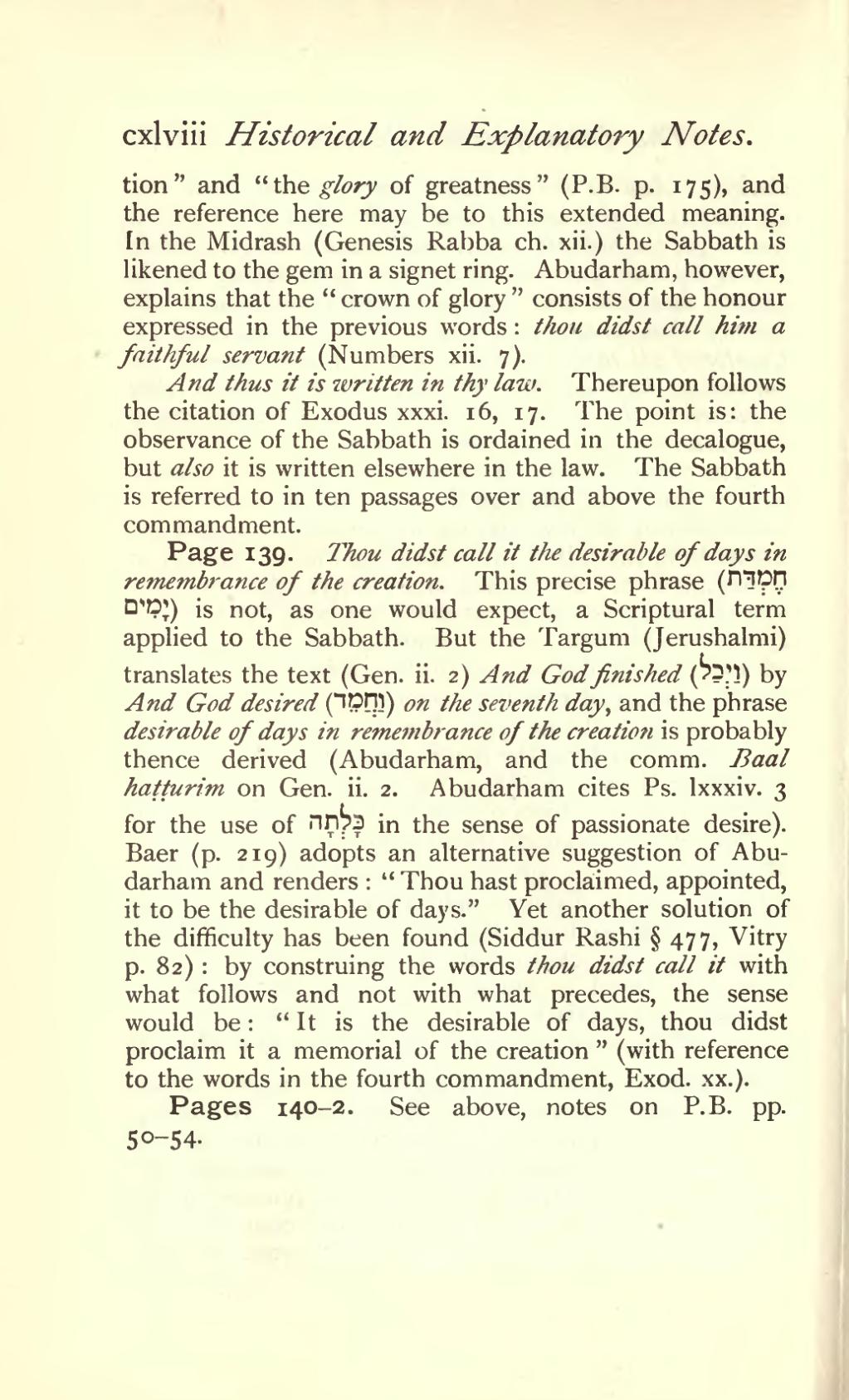tion" and "the glory of greatness" (P.B. p. 175), and the reference here may be to this extended meaning. In the Midrash (Genesis Rabba ch. xii.) the Sabbath is likened to the gem in a signet ring. Abudarham, however, explains that the "crown of glory" consists of the honour expressed in the previous words: thou didst call him a faithful servant (Numbers xii. 7).
And thus it is written in thy law. Thereupon follows the citation of Exodus xxxi. 16, 17. The point is: the observance of the Sabbath is ordained in the decalogue, but also it is written elsewhere in the law. The Sabbath is referred to in ten passages over and above the fourth commandment.
Page 139. Thou didst call it the desirable of days in remembrance of the creation. This precise phrase (חֶמְדַּת יָמִים) is not, as one would expect, a Scriptural term applied to the Sabbath. But the Targum (Jerushalmi) translates the text (Gen. ii. 2) And God finished (וַיְכַל) by And God desired (וַחֲמֵד) on the seventh day, and the phrase desirable of days in remembrance of the creation is probably thence derived (Abudarham, and the comm. Baal haṭṭurim on Gen. ii. 2. Abudarham cites Ps. Ixxxiv. 3 for the use of כִּלְתָה in the sense of passionate desire). Baer (p. 219) adopts an alternative suggestion of Abudarham and renders: "Thou hast proclaimed, appointed, it to be the desirable of days." Yet another solution of the difficulty has been found (Siddur Rashi § 477, Vitry p. 82): by construing the words thou didst call it with what follows and not with what precedes, the sense would be: "It is the desirable of days, thou didst proclaim it a memorial of the creation" (with reference to the words in the fourth commandment, Exod. xx.).
Pages 140-2. See above, notes on P.B. pp. 50-54.
